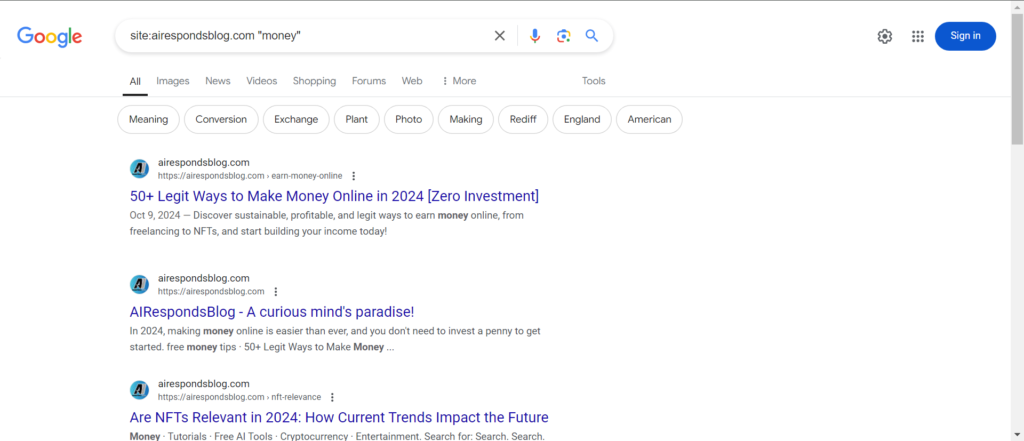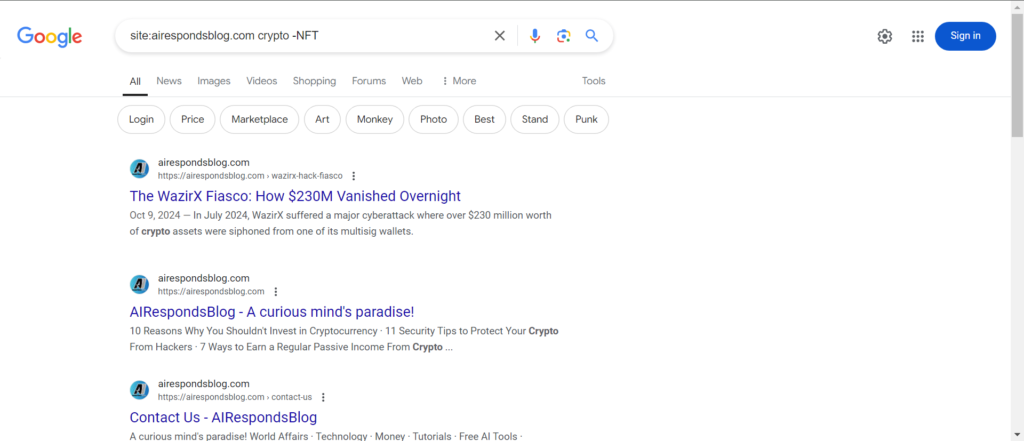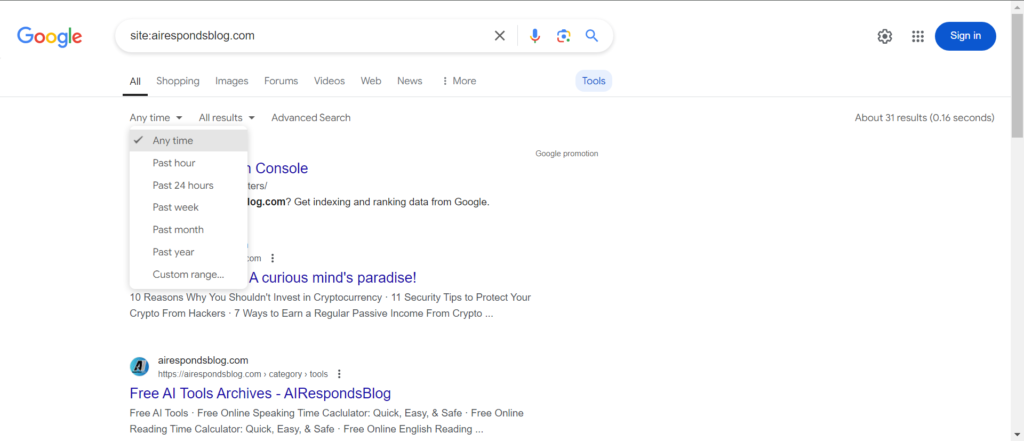Searching on Google can often feel overwhelming, with millions of results appearing for even the simplest queries. Many users struggle with irrelevant results, confusing suggestions, and the frustration of not finding exactly what they need!
This happens because Google uses complex algorithms that sometimes misinterpret user intent, leading to a disconnect between what you search for and what you get.
But fear not! The Google search tips listed below will streamline the entire experience, empowering you to refine your queries and unlock more accurate, relevant results that will transform your Google search experience.
How do I search effectively on Google?
1. Use quotation marks for exact phrases
When searching for a specific phrase, enclose your keywords in quotation marks. This tells Google to find the exact words in that order, eliminating irrelevant results. For example, search for “best Italian restaurants” to find only results that contain that exact phrase.

2. Utilize the asterisk wildcard
If you can’t remember part of a phrase or need to fill in gaps, use an asterisk (*) as a placeholder. For example, searching for “A * in time saves nine” will provide results that complete the saying.
3. Search specific sites
Want information from a particular website? Use the site: command followed by the website’s URL and your search term. For example, site:wikipedia.org “climate change” will return results only from Wikipedia.
4. Exclude words with the minus sign
If you want to refine your search further, use a minus sign (-) to exclude certain words. For instance, searching for pasta recipes -chicken will yield pasta recipes that don’t include chicken.

5. Use the define: command for definitions
Need a quick definition? Start your search with define: followed by the word you want to define. For instance, define:serendipity will provide you with the meaning and usage examples directly in the results.
6. Search by file type
To find specific file types, use the filetype: command. For example, searching marketing strategies filetype:pdf will only show PDF documents related to marketing strategies.

7. Leverage advanced search features
For a more guided search, utilize Google’s Advanced Search. Just type “Advanced Search” in Google, and it will provide a structured form to input your search criteria for better-targeted results.
8. Set time constraints
To filter results by time, use the Tools feature after performing a search. Click on “Tools,” then select the time range that suits your needs, like “Past hour,” to get the most current information.

9. Use the related: command
Find websites similar to a particular site by typing related: followed by the URL. For instance, related:amazon.com will show you sites that are similar to Amazon, broadening your options.
10. Conduct unit conversions directly
You can quickly convert units by entering them directly into the search bar. For example, type 32 miles to kilometers, and Google will give you the answer without needing a separate conversion tool.
These tips not only make your search process more efficient but also help you uncover more precise and relevant information. Try incorporating these strategies in your next Google search to see the difference!
Advanced Google search tips for curated results
1. Utilize Google Scholar for academic research
Google Scholar is a dedicated search engine for scholarly literature, allowing researchers to find articles, theses, books, and conference papers across various disciplines.
By searching for terms directly in Google Scholar, you can access peer-reviewed sources that are often more credible than regular web results. Additionally, you can set alerts for specific topics to stay updated on new publications.
2. Search for patents and legal documents
For research that involves innovation or legal studies, Google Patents is an invaluable resource.
By visiting Google Patents, you can search for patents, legal documents, and scientific publications. Use keywords, inventor names, or patent numbers to find relevant documents, which can enhance your research with official sources of information.
3. Explore Google Dataset Search
Google Dataset Search is a powerful tool for researchers looking for data sets across the web.
By accessing Google Dataset Search, you can find publicly available datasets from various sources, including government agencies, academic institutions, and organizations. This tool is particularly beneficial for data-driven research, as it allows you to filter results based on type, source, and topic.
These advanced tips can significantly enhance the quality of research and academic work, helping users access credible, relevant, and up-to-date information.
As Google’s algorithms continue to evolve in 2024, users may face new challenges in retrieving relevant and precise search results. Frequent algorithm changes can lead to inconsistencies, resulting in irrelevant links and content that doesn’t match user intent. This can be frustrating for anyone seeking accurate information, especially for researchers and students who rely on trustworthy sources.
Fortunately, with the right Google search tips, you can navigate these changes effectively. By implementing advanced search techniques, users can filter out irrelevant content, access scholarly resources, and refine their queries for better accuracy.
These strategies not only enhance the search experience but also empower users to find the information they need more efficiently!
If you are concerned about too much of forums in Google search results, fret not. It has to do with a recent algorithm update.
Before you leave, discover expert search tips for Bing to make the most out of Microsoft’s search engine!

